As our beloved canine companions age, their needs evolve, especially when it comes to their diet. That once-energetic puppy or steadfast adult dog may now be showing signs of slowing down, sleeping more, chewing less vigorously, or eating at a more leisurely pace. This is a clear indicator that it’s time to re-evaluate their nutrition. Switching to a Healthy Soft Dog Food For Senior Dogs isn’t just a recommendation; it’s a crucial step in ensuring their comfort, vitality, and overall well-being during their golden years. A well-chosen diet can provide the essential fuel they need, deliver flavors that excite their diminished senses, and offer a soft texture that’s gentle on their aging teeth and digestive systems. It’s about more than just sustenance; it’s about making every meal a supportive and enjoyable experience for your loyal friend.
Why Soft Food Works Better for Senior Dogs
The transition to a soft food diet for senior dogs is often driven by several age-related changes that impact their ability to eat and digest efficiently. Firstly, many older dogs experience dental issues, including weaker teeth, gum disease, or even missing teeth, which can make chewing hard kibble painful or impossible. Soft food provides an easy-to-eat alternative that reduces strain on their mouths.
Secondly, a senior dog’s digestive system can become less efficient. Soft, wet foods are generally easier to digest, helping to prevent gastrointestinal upset and ensure better nutrient absorption. This is crucial for maintaining their health and energy levels. Moreover, as dogs age, their senses of smell and taste can diminish, making them less enthusiastic about their meals. Wet foods often have a stronger aroma and more palatable texture, which can stimulate their appetite and encourage them to eat.
Finally, hydration is paramount for senior dogs, and wet food naturally contains a higher moisture content than dry kibble. This increased liquid intake helps support kidney function, aids in overall hydration, and can be particularly beneficial for dogs who don’t drink enough water on their own. By addressing these specific needs, healthy soft dog food ensures your senior companion remains nourished and comfortable.
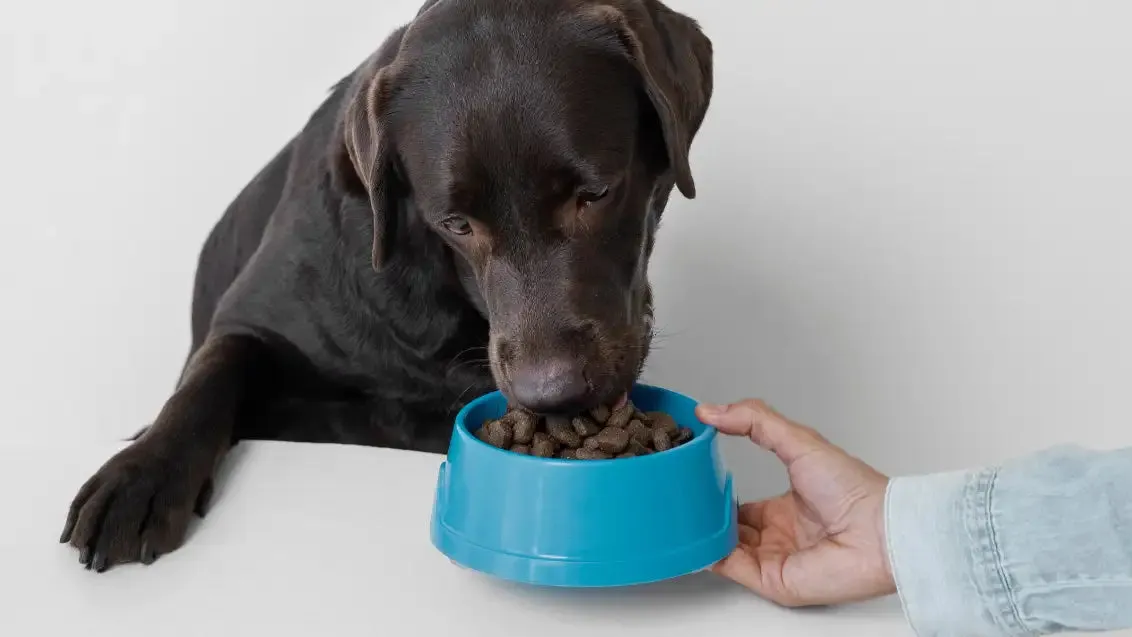 A senior dog enjoying a bowl of healthy wet dog food, emphasizing soft texture for easy eating
A senior dog enjoying a bowl of healthy wet dog food, emphasizing soft texture for easy eating
Signs Your Senior Dog Needs a Food Upgrade
Recognizing the subtle cues that your senior dog’s diet needs attention can significantly impact their quality of life. Keep an eye out for these common indicators that it’s time to seek out the best healthy soft dog food for senior dogs:
- Loss of Appetite or Pickiness: If your dog sniffs their food bowl and walks away, or shows less enthusiasm for meals than before, it could be due to discomfort while chewing or a diminished sense of taste.
- Digestive Issues: Frequent bouts of diarrhea, constipation, or upset stomach (“his poop’s a hot mess”) are clear signs that their current food isn’t agreeing with their sensitive digestive system.
- Bad Breath: Persistent bad breath, beyond the usual “dog breath,” can indicate dental problems or digestive issues that a softer, more digestible food might alleviate. If your dog has chronically bad breath, you might also want to read about what is the best dog treat for bad breath.
- Dull Coat and Skin Problems: A lack of shine in their fur, dry flaky skin, or unexplained patches can be symptoms of nutritional deficiencies, suggesting their current food isn’t providing adequate nutrients.
- Unexplained Weight Changes: Rapid weight loss or gain can be serious indicators of underlying health issues or an inadequate diet that isn’t meeting their changing metabolic needs. For senior dogs, finding the best food for senior dog losing weight is crucial for maintaining a healthy body condition.
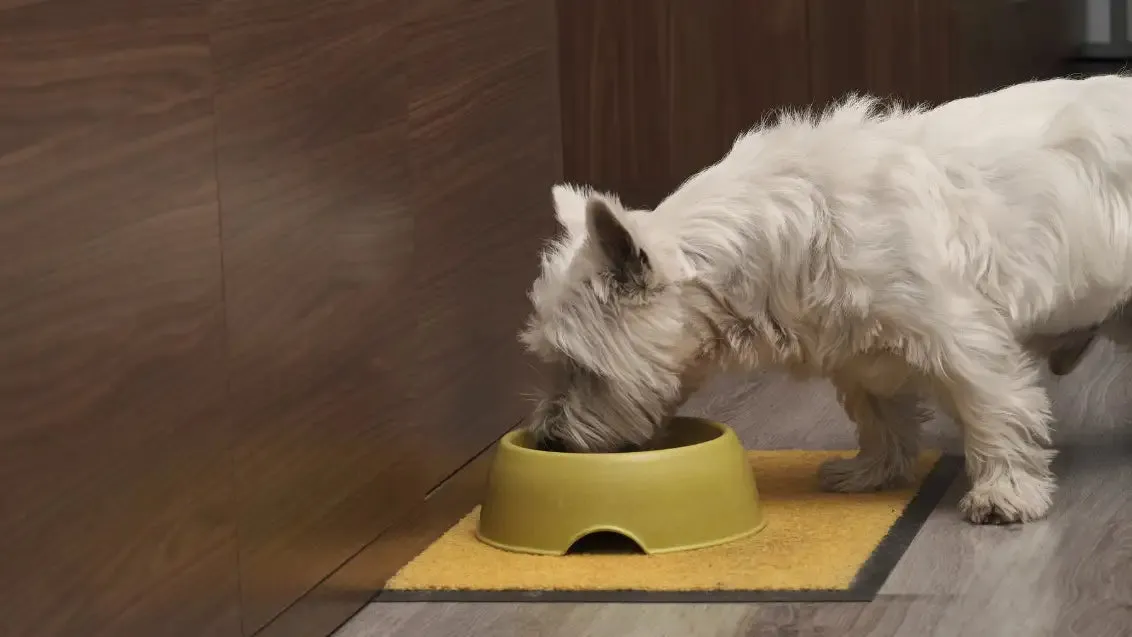 A small dog with a thoughtful expression, possibly indicating a sensitive stomach or dietary concern
A small dog with a thoughtful expression, possibly indicating a sensitive stomach or dietary concern
Essential Ingredients for Healthy Soft Senior Dog Food
When choosing a healthy soft dog food for senior dogs, the ingredient list is paramount. Prioritize formulas that offer a blend of easily digestible proteins, healthy fats, and beneficial carbohydrates, along with essential vitamins and minerals tailored for aging bodies.
- High-Quality Animal Proteins: Look for identifiable meat sources like chicken, turkey, or beef as the primary ingredient. These are essential for maintaining muscle mass, which naturally declines with age.
- Omega-3 Fatty Acids: Ingredients rich in fish oil (like salmon oil) are vital for cognitive function, joint health, and a healthy skin and coat. Omega-3s support brain health, reduce inflammation, and can even help improve mood.
- Digestible Fiber Sources: Pumpkin is an excellent addition, known for its ability to regulate digestion and promote healthy bowel movements, contributing to good gut health.
- Complex Carbohydrates: Sweet potatoes offer a slow-release energy source, preventing sugar crashes and providing essential vitamins.
- Antioxidant-Rich Fruits & Vegetables: Blueberries, spinach, and carrots provide powerful antioxidants that boost the immune system and protect against cellular damage, acting as an “immune shield” for your aging dog.
These ingredients work synergistically to support the unique physiological needs of senior dogs, ensuring they receive balanced and complete nutrition from their soft food diet.
Red Flags to Watch Out For
Just as important as knowing what to include, it’s vital to be aware of ingredients that can be detrimental to your senior dog’s health. When selecting a healthy soft dog food, always scrutinize the label for these “red flags”:
- “Meat by-products”: This vague term often refers to rendered animal parts that can be of inconsistent quality and questionable nutritional value. Always opt for clearly identified meat sources.
- Corn Syrup: An unnecessary source of sugar that can lead to weight gain, dental issues, and other health problems for senior dogs.
- Artificial Colors/Flavors: These synthetic additives offer no nutritional benefit and can potentially trigger allergies or sensitivities in older, more delicate digestive systems.
- Excessive Salt: High sodium levels can be problematic for a senior dog’s kidneys and cardiovascular health. Always choose foods with moderate salt content.
Avoiding these ingredients ensures that your senior dog receives only wholesome, beneficial nutrition.
Top 5 Healthy Soft Dog Food Options for Seniors—Comparison Table
Choosing the right healthy soft dog food for your senior companion can be overwhelming with so many options available. Here’s a comparison of some highly-regarded wet dog foods designed specifically for the unique needs of older dogs, known for their soft texture and nutritional benefits:
| Rank | Product Name | Top Benefits | Texture | Vet Recommended |
|---|---|---|---|---|
| 1 | Hill’s Science Diet 7+ | Balanced nutrition, highly digestible, protein-packed | Soft | Yes |
| 2 | Blue Buffalo Homestyle Senior | Real meat as the first ingredient, grain-free options, great taste | Chunky | Yes |
| 3 | Nutro Ultra Grain-Free Senior | Allergy-friendly, rich in antioxidants for immune support | Smooth | Yes |
| 4 | Wellness Complete Health Senior | Promotes gut health, supports a shiny coat, whole-food ingredients | Paté | Yes |
| 5 | Purina ONE Vibrant Maturity | Enhances mental alertness, provides balanced nutrition, budget-friendly | Soft | Yes |
These options represent some of the best choices for senior dogs, offering the soft texture and nutrient profiles necessary for their continued health and happiness.
How to Improve Dog Gut Health in Seniors
A healthy gut is fundamental to overall health, especially for senior dogs whose digestive systems may be more vulnerable. Improving gut health directly impacts nutrient absorption, immune function, and even mood. Here are several effective strategies to boost your senior dog’s digestive well-being:
- Incorporate Real Pumpkin: Adding a tablespoon of plain, canned pumpkin (not pie filling, which contains spices and sugar) to their food can work wonders. It’s a natural source of fiber that helps regulate bowel movements and soothe an upset stomach.
- Consider Probiotics: Probiotic supplements introduce beneficial bacteria to the gut, helping to balance the microbiome and improve digestion. Always consult your veterinarian before adding any new supplements to your dog’s diet to ensure it’s appropriate for their specific health needs.
- Try Goat Milk Toppers: Unpasteurized goat milk contains natural probiotics, enzymes, and essential vitamins and minerals that can support gut health and offer an appealing taste boost.
- Smaller, More Frequent Meals: Instead of one or two large meals, dividing their daily food intake into three or four smaller portions can ease the digestive load and reduce the chances of upset.
- Add Organic Bone Broth: Bone broth is packed with gelatin, collagen, and amino acids that are highly beneficial for gut lining integrity and overall digestive health. Ensure it’s organic and free from onions or garlic.
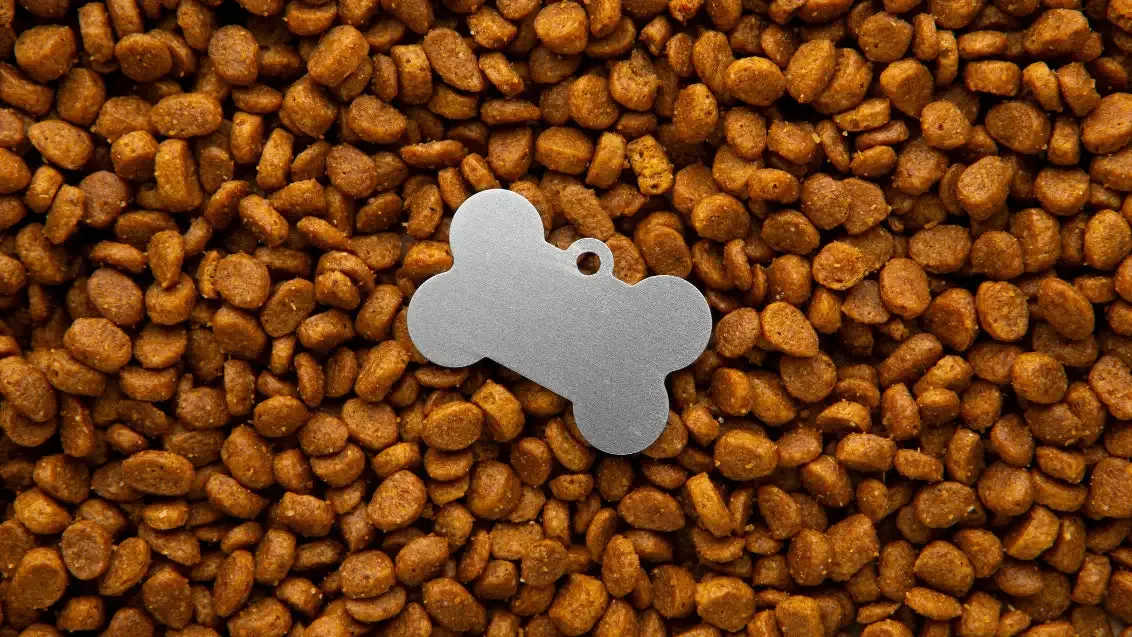 A close-up image showing a dog's food bowl with a gut-healthy meal, possibly including pumpkin or probiotics
A close-up image showing a dog's food bowl with a gut-healthy meal, possibly including pumpkin or probiotics
Choosing Grain-Free Options for Senior Dogs with Allergies
For senior dogs suffering from food allergies or sensitivities, a grain-free diet can often provide significant relief. While not all dogs require a grain-free approach, those exhibiting certain symptoms may benefit from eliminating common grain fillers from their diet. Look for healthy soft dog food for senior dogs that specifically state “grain-free” on the label and utilize alternative carbohydrate sources.
Common signs that your senior dog might benefit from a grain-free diet due to allergies include:
- Dry, Itchy Skin: Persistent scratching, flakiness, or redness of the skin, even after ruling out external parasites. For more on skin issues, you can check out my dog has dry flaky skin and scabs home remedy.
- Frequent Ear Infections: Chronic ear infections can be a hidden symptom of food allergies, as inflammation can manifest in the ears.
- Vomiting After Meals: Repeatedly throwing up food can indicate that their digestive system is struggling to process certain ingredients.
- Red, Itchy Patches: Localized areas of skin irritation, hot spots, or excessive licking can point to an allergic reaction.
A high-quality grain-free soft food will replace grains with easily digestible ingredients like sweet potatoes, peas, or lentils, ensuring your senior dog receives complete nutrition without triggering allergic responses.
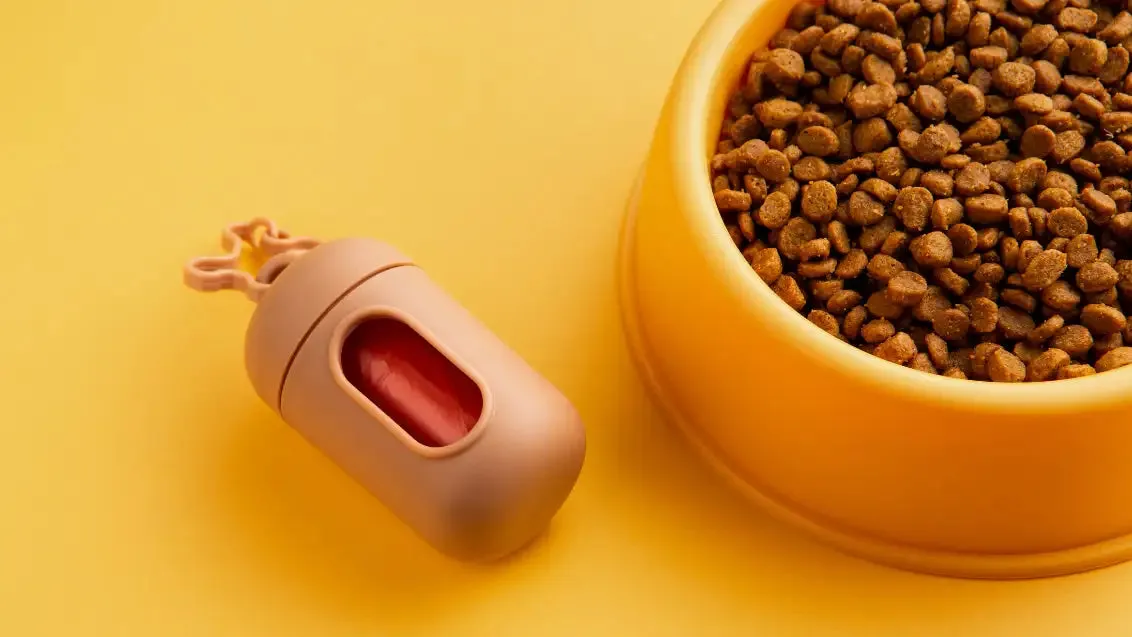 A dog looking attentive, possibly indicating sensitivity or allergies
A dog looking attentive, possibly indicating sensitivity or allergies
Soft Food Considerations for Small Senior Breeds with Sensitive Stomachs
Small senior dog breeds often come with their own set of unique dietary challenges, particularly sensitive stomachs. Their smaller size means a faster metabolism and a more concentrated need for nutrient-dense foods, while their delicate digestive systems require extra care. When selecting healthy soft dog food for these particular seniors, focus on formulations designed to be gentle and highly digestible.
Key considerations include:
- Limited Ingredients: Opt for foods with a shorter, recognizable ingredient list. Fewer ingredients often mean fewer potential irritants for a sensitive stomach.
- Easily-Digestible Proteins and Carbs: Choose recipes featuring novel proteins (like duck or venison) or highly digestible common proteins, paired with gentle carbohydrates such as pumpkin or sweet potato.
- No Artificial Additives: Avoid artificial colors, flavors, and preservatives, which can upset a sensitive stomach.
- Smaller Portion Packaging: Some brands offer wet food in smaller tubs or pouches, which can be ideal for portion control and ensuring freshness for smaller breeds.
These tailored soft food options help ensure that small senior breeds with sensitive stomachs receive the nutrition they need without digestive distress.
Wholesome Homemade Treats for Senior Dogs
Beyond their regular meals, offering senior dogs healthy, soft treats can be a wonderful way to provide extra nutrition, comfort, and positive reinforcement. Homemade treats allow you to control the ingredients, ensuring they are gentle on sensitive stomachs and aging teeth. Here’s a simple recipe for nutritious, soft bites perfect for your senior companion:
Banana & Oat Power Bites
These bites are easy to chew, packed with beneficial ingredients, and free from any harsh additives.
Ingredients:
- 1 ripe banana, mashed
- 1 egg, lightly beaten
- 1 cup oat flour (you can make this by blending rolled oats into a fine powder)
- 1 tbsp coconut oil, melted
Steps:
- Mix Everything: In a medium bowl, combine the mashed banana, beaten egg, oat flour, and melted coconut oil. Mix until a soft, pliable dough forms.
- Form Bites: Roll the dough into small, bite-sized balls, perfect for a senior dog’s chewing ability.
- Bake: Place the balls on a parchment-lined baking sheet and bake at 350°F (175°C) for 15-20 minutes, or until lightly golden and firm.
- Cool & Store: Let the treats cool completely on a wire rack before storing them in an airtight container in the refrigerator for up to a week.
These wholesome treats are a delicious way to show your senior dog some extra love and support their health. Remember, even treats should contribute positively to their overall diet.
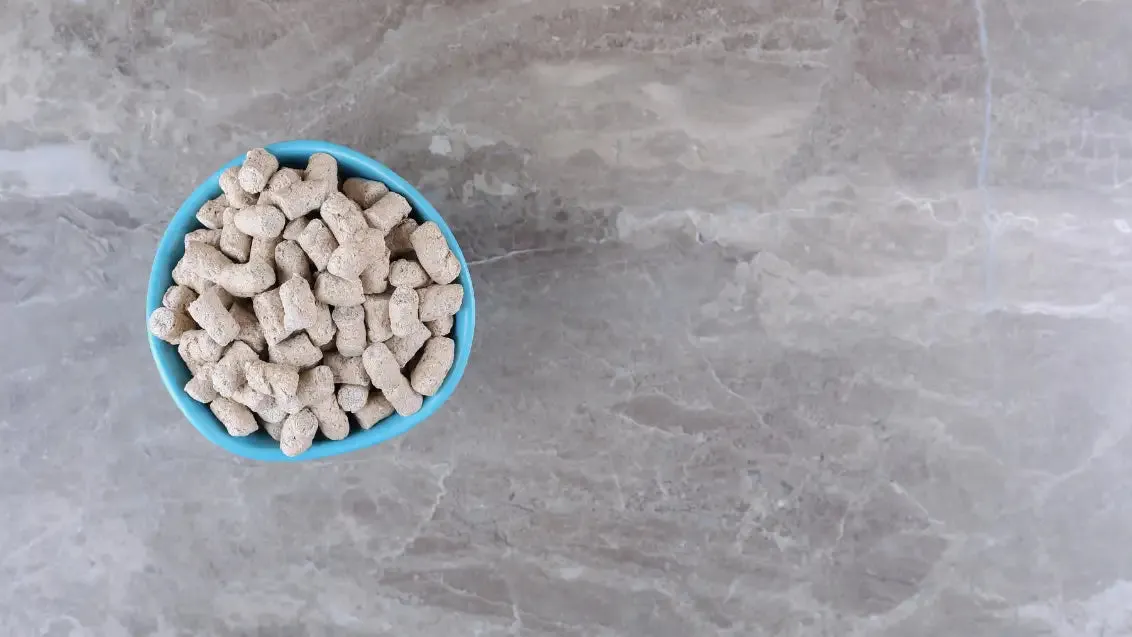 An image of freshly baked banana and oat power bites, laid out to cool, perfect for senior dogs
An image of freshly baked banana and oat power bites, laid out to cool, perfect for senior dogs
Summing Up!
Navigating the senior years with your dog is a journey of adaptation and love. While aging is a natural process, ensuring their comfort and health is a choice we can actively make through thoughtful care. Choosing the best healthy soft dog food for senior dogs is more than just a dietary change; it’s an investment in their continued vitality and happiness. Prioritize foods with a soft texture, packed with high-quality protein, and enriched with gut-boosting ingredients. Actively avoid artificial additives and vague “by-products.” Instead, opt for clean, wholesome ingredients that nourish their body from the inside out.
Beyond their main meals, supplement their diet with love, perhaps by tossing in a treat from a homemade dog treats recipe, and consistently check their gut health. This isn’t just about food; it’s their essential fuel, supporting every tail wag and every moment of joy you share. Embrace the opportunity to be the dog parent of their dreams, providing them with the comfort and quality of life they truly deserve in their golden years.
